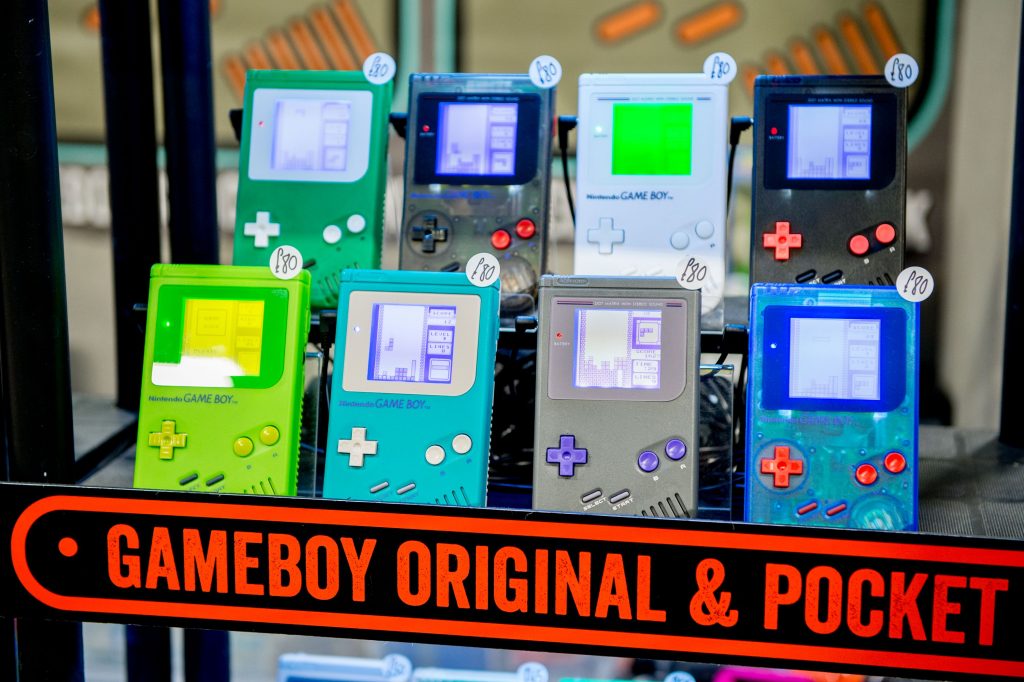
Dhvanil Sheth, founder and CEO of Skillmatics.
Skillmatics
Have you ever caught yourself trying to scroll up on a paperback book, mistaking it for any one of a number of electronic devices?
If so, you’re not alone. For most, it might result in a moment of self-loathing followed by a speedy — if ironic — status update to lament society’s growing tech addiction. But for Dhvanil Sheth, it marked the birth of a $2 million company.
Sheth is founder and CEO of Skillmatics, an educational games business designed to reduce children’s dependence on technology.
The young entrepreneur launched the company in 2016 after catching his three-and-a-half-year-old nephew attempting to swipe an early learning book. In the three years since, he has seen it break records as the first Indian brand to be stocked globally by iconic toy store Hamleys.
Already, the then-26-year-old had been looking for a way to break away from his job as a management consultant and develop the retail space in his native India. But suddenly, seeing his nephew’s actions, he believed he’d found a real problem to solve.
“I was always very clear that I would eventually start my own business,” Sheth told CNBC Make It.
“That moment really brought it home,” he said.
Identifying a market
In the months that followed, Sheth quickly set to work consulting parents in Mumbai to find out if they had the same concerns.
When it turned out they did, he quit his job at Boston Consulting Group and invested the $50,000 he had saved to come up with a range of early-learning games designed to shift children away from apps and back to physical games.
“I spent six months with parents to get feedback and it was clear that they wanted to move their children away from mindless technology consumption,” said Sheth, now 29.
So, working with product designers in the U.S., Sheth came up with a range of reusable “write and wipe” math, science, language and logic games aimed at children aged three to six.
“Young children learn best by repetition. We knew what we had to build in repeat utility, reuse, so we came up with the write and wipe concept,” he said.
Thinking global
Having settled on an initial range of eight Skillmatics products, Sheth quickly set about selling online. Within six months of launching in July 2017, one of the products became the No. 1 educational game on Amazon.
“We frugally spent on marketing on Amazon,” said Sheth. “It kind of happened organically.”
It was all part of Sheth’s plan to build a global name of an Indian brand. That rapid growth strategy even saw the young entrepreneur turn down $750,000 from an investor who wanted him to concentrate Skillmatics on India alone, he said.
“From day one, I was sure that the business I built would be global,” said Sheth.
“I think most consumer businesses have been across Europe and North America because historically that’s where the consumers have been. That’s all changing now, ” he continued.
We want to double down on those two markets that serve as playbooks for the rest of the world.
Dhvanil Sheth
founder and CEO, Skillmatics
Indeed, Skillmatics’ products are now available in 15 countries globally via its own website and online marketplaces. It is also available in 3,000 retail stores, thanks to a push when Hamley’s CEO called for the product to be stocked at its stores globally, Sheth said.
Earlier this year, the start-up received $1.5 million in funding from venture capital firm Sequoia, taking total funding received to date to $2 million. Revenues, meanwhile, hit $1.5 million in 2019. That will help the company with its expansion plans across the U.S. and India, where its products retail for around $30 and $5 to $10, respectively, Sheth said.
“We want to double down on those two markets that serve as playbooks for the rest of the world,” said Sheth, who now leads a team of 40.
It will also assist him on his dream to build an “ecosystem of products” and help reinvent what he describes as an outdated education system, he said.
“Traditionally, there has been a specific focus on building subject knowledge,” said Sheth. “But, in the future, I think it’s going to be more about developing a core set of skills.”
Lessons for others
That attitude links to Sheth’s advice for fellow would-be entrepreneurs, too. Rather than getting an MBA, as once was typical for aspiring entrepreneurs, Sheth advocated getting real-life experience at work.
“That’s where I was pocking around and getting ideas,” the accounting grad said, referring to his time spent working as a consultant across India, Japan and North America. In the end, it was a pro-bono project he worked on with the Canadian government that helped him identify the opportunities in the education system, he said.
Meanwhile, outside of work, Sheth advocated reading business books, such as Phil Knight’s “Shoe Dog,” and watching lectures on YouTube, like Stanford University’s graduate series, to gain insights from the world’s great leaders.
Doing so helped him identity some key traits that have shaped his own entrepreneurial journey, he said.
“Two or three I find most impactful are grit and persistence,” said Sheth. “No journey is a straight line: Even the best companies were often close to bankruptcy.”
“The other is humility. The people I’ve seen who’ve gone on to be great leaders … have tended to be more open to listening and learning. I think that really helps,” he said.
Don’t miss: India crowns its newest billionaire, a 37-year-old former teacher
Like this story? Subscribe to CNBC Make It on YouTube!

